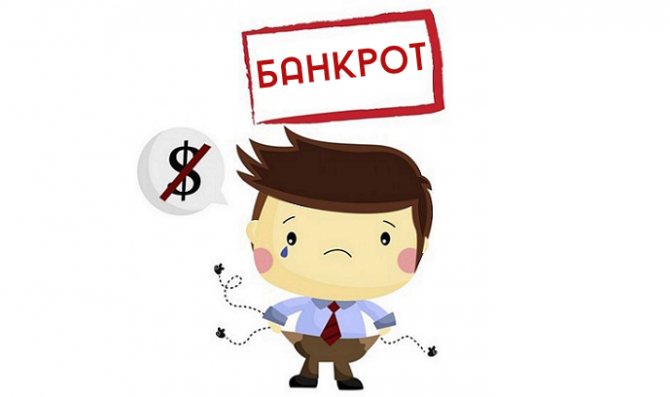Can a debt be collected from a common-law wife?
According to the law, the bailiff has the right to impose a penalty on the personal property of the debtor (Article 80 of Federal Law No. 229 of October 2, 2007 “On Enforcement Proceedings”). During the procedural actions, it will be necessary to establish the ownership of the property. In this case, the “presumption of innocence” does not apply. The borrower's cohabitant has to document that the property belongs to him personally. This also applies to shares in real estate, which must have title papers. Otherwise, the executive service has the right to seize all valuable property located in the apartment.
A simple example. The debtor lives in an apartment with his common-law wife. When visiting, the bailiff sees expensive household appliances there: a split system, a refrigerator, a food processor. The woman bought all these things long before moving to live in the debtor’s apartment. Can they collect a debt from a woman living in a civil marriage, and what should she do?
In the presence of witnesses, she must declare ownership of the property and confirm her words with receipts, checks or warranty cards. If this is not done, then the government representative will be able to confiscate expensive equipment in the future. Therefore, the owner needs to make sure that the inventory contains a note indicating that the items belong to her.
If the housing for the defaulter is the apartment of the common-law wife, the living space in this case cannot be confiscated either completely or partially. This type of marriage is not legalized, which means that the borrower cannot claim a share of the property of the unofficial spouse.
Article 45 of the Family Code also regulates this issue. It applies to spouses living in civil and official marriages. The fact of unofficial cohabitation will need to be confirmed by testimony. Let's take a closer look at this article.
- Family Code and loan debts: a possible dangerAccording to Article 45 of the Family Code of the Russian Federation, joint family property can be subject to recovery for the common obligations of the spouses or the debt of one of them, if all the loan proceeds were spent on common needs. If joint property does not cover the entire amount of the debt, the spouses are jointly and severally liable before the law, taking into account personal property as well.
The wife of a borrower who has overdue a debt herself acquires the status of a debtor. And the bailiff has the right to take measures to collect the debt (blocking a bank account, deductions from wages, etc.). Such threats are voiced by bailiffs at the beginning of legal proceedings.One more point to remember. To recover the common and personal property of the wife (husband), you need to have a separate court order. That is, in enforcement proceedings where a husband appears and the woman is not recognized as a co-defendant, her part of the property is not subject to confiscation.
In this case, Article 80 of Federal Law No. 229 “On Enforcement Proceedings” will apply. The spouse should officially declare rights to personal property or real estate that are not subject to seizure by a bailiff.
Often, employees of executive services exceed their powers contrary to the letter of the law. For example, they describe the property of a wife who is not a co-defendant in her husband’s case, or they do not recognize the documents she presented as evidence. To avoid problems during legal proceedings and defend your legal rights, use our advice.
- How to avoid problems during enforcement proceedings If you do not want to become a victim of violations by bailiffs, then do the following.
The spouse who is considered a co-borrower on the loan must prove to the court that the funds received were used for the personal needs of the borrower, and not to cover general family needs. This fact is confirmed in writing by the debtor himself, or the court accepts the testimony of witnesses if the couple lives separately.If responsibility is assigned to one spouse, the other urgently needs to collect papers for his personal property, which is located in the debtor’s apartment. All these documents are presented to the bailiff.
If the bailiff nevertheless described the non-confiscated property and ignored the law, urgently file a complaint about the illegality of the actions to his supervisor.
If the inventory includes things that are not the property of the debtor, then their owner can apply to the court with a demand to exclude his property from the act list and lift the arrest from it. It is even possible to compensate for damage received during procedural actions and compulsory measures.
[offer]
Reasons for termination of a case based on a writ of execution after the death of a person
The decision to cancel enforcement proceedings after the death of the debtor can be made in the absence of heirs. The procedure consists of the following stages:
- The bailiff or other interested parties file a petition addressed to the judge to terminate the proceedings for a specific reason. It is important to complete the application in the prescribed manner and attach as much evidence as possible.
- The consideration of the appeal is carried out within ten days from the moment of registration of the form in the court office (clause
1 tbsp. 440 Code of Civil Procedure of the Russian Federation).
- The arbitrator issues a ruling, copies of which must be sent to all participants in the proceedings.
- The bailiff completes the process and submits the documents to the archive.
If the case materials do not identify the legal successors of the borrower’s legal obligations, then after his death foreclosure occurs even on the previously designated only home.
Can a debt be collected from a wife after a divorce?
The Family Code of the Russian Federation states that upon divorce, the loan, like the property of the spouses, is divided equally (Article 45). This is a basic principle that has several nuances. For example, a mortgage debt can be registered for one family member in a separate agreement.
By the way, the problem with mortgages is considered the most difficult due to the huge amounts and long repayment periods. Since the borrower is not the full owner of the mortgaged apartment until full redemption, it cannot be sold or exchanged. If a husband has a loan debt, can they collect it from his wife?
Usually, when a marriage is dissolved, they do this: one of the spouses takes out another loan to pay off the debt, the couple pays this amount, and the new loan is divided in half.
In some cases, Article 339 (clause 2) of the Family Code of the Russian Federation allows judges to divide family debt in a different proportion. This is possible if one of the two did not work, did not replenish the general budget, or spent funds for personal purposes. The debtor is obliged to pay the bank independently if he took out a loan before marriage.
Who pays debts if the debtor dies
In this situation, bailiffs are guided by Federal Law No. 229. Moreover, the death of the debtor in enforcement proceedings is described here in Article 43. Note that current legislation provides for the termination of actions to collect the property of the defaulter in such circumstances.
However, this option is only possible in the absence of a legal successor to the debtor. In addition, this algorithm is also applied in a situation where a person who owes money to creditors is declared missing.
Of course, this requires confirmation of the fact of death or loss by an appropriate court decision or a certificate issued by an authorized agency. Moreover, termination of an obligation by the death of the debtor is the prerogative of the court. In such situations, the FSSP employee does not have the right to single-handedly complete the process, with rare exceptions.
What to do if the husband took out a loan without his wife’s consent
From a legal point of view, the question of the wife’s approval of her husband’s loan is not provided for by law. But banks are cautious and consider the appointment of a joint borrower in the person of a spouse as a prerequisite for obtaining a mortgage.
In the case of a consumer loan for the purchase of, for example, household appliances (washing machine, refrigerator, etc.), the consent of a family member is not required. The question is looming: can a wife be able to collect her husband’s debts if she was not aware of his plans?
Article 45 of the Family Code of the Russian Federation states that responsibility for the return of loan funds falls on the one who draws up the agreement (clause 1). If a person violates the repayment schedule, the debt will be collected from his property. If there is not enough of it to repay the loan amount, the bank may go to court to allocate part of the joint property of the spouses to repay the loan.
But at the same time, the law provides for the concept of presumption of debts acquired during marriage.
There are cases when a wife is required to prove that she knew nothing about receiving a loan, and the funds taken by her husband were spent on his own purposes. Here it is better to break the marital ties or enter into a marriage contract, according to which the spouse becomes the full owner of the family property after the divorce.
Replacing a person in an obligation
The Civil Code defines succession as a type of transfer of legal rights and obligations from one entity to another. Particularly interested in general or universal, private succession, that is, inheritance situations. The first type involves the complete transfer of a citizen’s property and obligations to his heir, and the second is accomplished upon receipt of civil legal capacity by the successor.
The procedure for involving an heir in the debtor's proceedings is permissible only after six months from the death of an individual, as well as after assuming the rights of inheritance (Article 44 of the Code of Civil Procedure of the Russian Federation). In this case, the new successor may, on his own initiative, go to court or be legally involved in the proceedings.
In practice, there are often situations when citizens refuse an inheritance after receiving information about outstanding debts. In this situation, the plaintiff has the right to apply for the imposition of interim measures in relation to the property of the defaulter in order to eliminate potential risks.
If the successor renounces the legal right, all of the debtor’s property is sent to satisfy the creditor’s claims, and the remaining part becomes the property of the municipality or the state.
If the court makes a positive decision on succession, a ruling is issued that is subject to immediate execution by a bailiff. Appropriate adjustments are made to the proceedings, and notifications are sent to the parties to the relationship. The procedure ensures continuity of the legal process.
It is important to understand that the person who inherited the property and obligations of the debtor will answer solely within the framework of the price of the inheritance received. For example, an individual’s debt amounted to 1 million rubles, and the subject inherited a house with a market value of 300 thousand rubles. In this situation, the heir can repay a proportionate part of the debt from his own funds or transfer the property for the implementation of the FSSP. Confiscation of the private property of the assignee is strictly prohibited.
When several persons take part in an inheritance case, obligations and property are distributed among them in accordance with the shares determined by the notary form. When the amount of the will is not sufficient to pay off the total amount owed, the executor approves priority order. The outstanding amounts of debts are subject to write-off due to the impossibility of repayment, and the case is terminated.
Should a wife pay a loan for her husband after his death?
The answer to the question whether the debts of a deceased husband can be collected from a wife is ambiguous. Let's consider two cases.
- The borrower had insurance. If, simultaneously with the loan agreement, the borrower took out insurance, which provides for the right to repay the loan by the insurance company in the event of the client’s death, the spouse will not have to pay his debts. The insurer will handle this.
All the wife of the deceased has to do is come to the insurance company with her husband’s policy, a loan agreement and a death certificate.If the occurrence of an insured event is determined, the insurer is obliged to repay the client’s bank loan.
- The borrower did not take out an insurance policy. According to Russian law, all property of a deceased husband is transferred to his widow. However, along with the rights, she also inherits the obligations of the deceased. Therefore, she will have to repay the loan issued by the bank in full.

This situation has its own subtleties.
If a bank employee calls and demands that a woman pay an overdue deposit, there is no need to do this. First, she must become an heir, officially assuming her rights, and then decide the affairs of the deceased. And no one will force the wife to pay her husband’s loans ahead of time; moreover, no penalties are charged for the delay.
The widow can come to the bank herself and write an application for a deferred payment (the so-called credit holiday) before assuming her inheritance rights.
If there are several heirs to the property, they are all responsible for the credit debts of the deceased. Any court will oblige them to repay the loan in equal shares.
If the inherited property is small and does not offset the debt owed to the lender, the deceased's spouse is not responsible for the outstanding balance. They can collect from her the amount of money at which the inheritance is valued.
It happens that the deceased borrower does not have any property, and the living space belongs to his wife. Since the widow did not inherit anything, she will have nothing to pay her husband’s debts and, according to the law, will not have to.
If bankers demand repayment of a loan and harass a woman with calls, she has the right to file a complaint about this in court. This case will be successful, and the widow will not have to pay off the debt of the deceased spouse if he did not leave her an inheritance.
Loans with collateral
In this case, it should be taken into account that under the loan agreement, the collateral is the basis for securing the loan. If heirs are found, the bank will not have to do anything, since the loan will have to be repaid as before. But if the inheritance has become escheated and transferred to the state, the bank has the right to file a claim to recover the collateral.

To write off a debt after accepting it as an inheritance, you must declare bankruptcy
At his discretion, the heir of the deceased borrower may refuse to repay the loan and invite the bank to take away the collateral. In this case, the lender will have to return to him the funds previously paid by the borrower on the loan if the collateral itself covers the total amount of the loan. From the moment the property is transferred to the bank’s disposal, the heir is relieved of all obligations for its maintenance (utilities for the apartment, real estate tax, etc.).
How to protect yourself from problems with bailiffs
Does your husband have several loans but is unable to repay them? Can a debt be collected from the debtor's wife? How to protect your property from bailiffs? These and similar questions haunt many women.
First of all, the borrower needs to get rid of personal property that rightfully belongs to him:
- officially donate an apartment (or part of the living space) to your wife by drawing up an appropriate agreement;
- all common property that will be divided during a divorce or foreclosure by the FSSP is usually given to close relatives (in this case, you need to take care of checks written out to other people).
When applying for a loan, it is better for the spouse to refrain from guaranteeing (if possible) so as not to endanger her property.
Nowadays, perhaps, it is rare to meet families who do without loans to buy expensive things. This is par for the course. The main thing is to assess your material resources and prepare methods of protection (drawing out an agreement to donate property to your wife, etc.), as mentioned above.
The best option for the average consumer is not to take out large loans. After all, different things happen in life - illness, divorce, death of close relatives. And this will make it very difficult to pay off the loan.
Reasons for termination of a case based on a writ of execution after the death of a person
The procedure for forced collection of debts under a judicial act continues for a long time and is associated with numerous difficulties and risks. There is no guarantee that the actions of the bailiff will give a positive result and the debt will be fully repaid. An additional obstacle to the fulfillment of court requirements is the death of the defendant. Therefore, it is necessary to know how the termination of enforcement proceedings occurs in connection with the death of the debtor, and what consequences await the claimant after this event.
When are bank calls to third parties legal?
Calls to relatives and friends are legal if they meet the requirements provided by law and if the relative has not expressed disagreement with contacting the bank.
Note!
The bank has the right to call a relative, but does not have the right to be intrusive, call too often, at night, or intimidate, pressure or threaten - these are grounds for a complaint to the police or prosecutor's office.
There are also a number of cases when the bank is legally forced to interact with a relative or loved one of the debtor:
- if the debtor does not repay the debt, but the loan agreement specifies a guarantor for the loan. Calling the guarantor, in this case, is legal;
- Calls to heirs are legal if the debtor has died.








